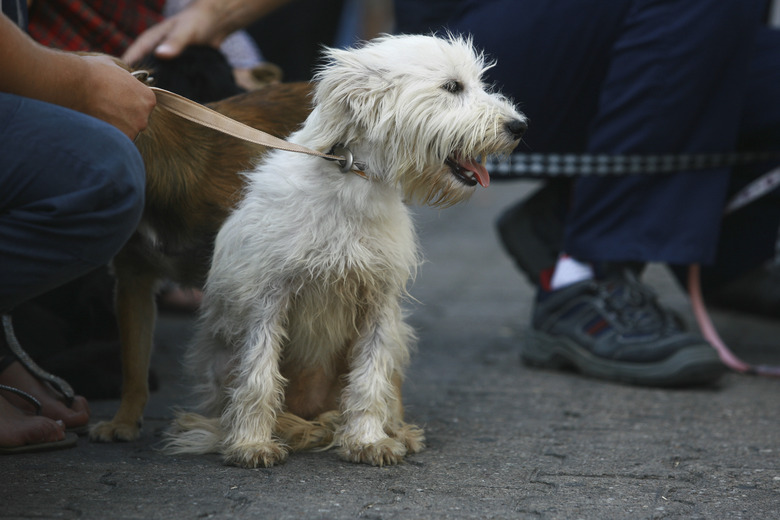Why Dogs Drink Urine
Humans have shared space with canines for so long that it's easy to think we have our furry friends figured out. So when the family dog does something as perplexing as drinking urine, we're naturally concerned and potentially disgusted by the behavior. While trying to lap up urine could signal specific issues in a dog that require an owner's attention, the act is much more natural to the species than you might suspect.
One Thirsty Puppy
One Thirsty Puppy
While you and I don't think of waste as quenching, many dogs have no similar compunction. Dogs apply the same loose standard of palatability to a puddle of urine as they would myriad food and water sources: If they can eat or drink it, they probably will. Urine doesn't introduce new pathogens into a canine's system and is a perfectly safe hydration source, though if increased thirst drives the action, you should let a vet see your pooch.
Flehmen Reaction
Flehmen Reaction
The Flehmen reaction is normal behavior common in the animal kingdom. In dogs, the Flehmen reaction can involve licking the recently released urine of another dog, then freezing in place for a moment with the tongue extended and curled. Though bizarre, the dog is placing the other's scent on a spot behind the upper front teeth, where two ducts lead to the vomeronasal organ, which is thought to play an important role in pheromone influences on animal brains and behavior.
Just a Bad Habit
Just a Bad Habit
Though urine drinking poses no health threat to a dog, the repeated behavior may signal a bad habit that needs training. As it's commonly seen in animals that spend a lot of time penned, such as pet store dogs, many believe urine drinking is a learned behavior associated with puppy boredom — a urine-drinking dog may need increased activity. Additionally, dogs commonly attempt to hide accidents known to displease owners, so indoor urine drinking may suggest further housebreaking is required.
Potential Problems
Potential Problems
If a dog is drinking its own urine because of thirst, offering increased water should remedy the problem. Excessive thirst may require veterinary attention. Increased thirst in dogs, called polydipsia, can signal underlying conditions such as kidney problems, hepatic diseases and congenital diseases like diabetes. Other potential causes can include protein deficiency in a dog's diet, side effects from a medicine, or even age — young dogs require different hydration than older dogs.
Always check with your veterinarian before changing your pet's diet, medication, or physical activity routines. This information is not a substitute for a vet's opinion.
